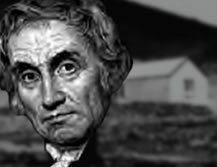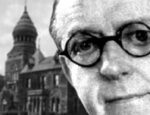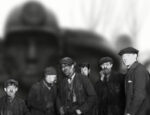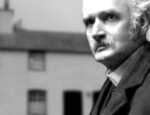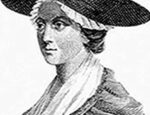Description
 Meet Samuel Drew (1765-1833) the Cornish son of a farmer and sometime ‘streamer for tin’, who was taught to read by his self-educated mother and would later be hailed as ‘The English Plato’. Drew was raised in St. Austell, Cornwall, by Wesleyan Methodist parents, and rarely attended school. At the age of ten he was apprenticed to a shoe-maker, by twenty-two he was running his own cobblers. All the while he was employed in the ‘gentle craft’ of shoemaking, he made a name for himself as a sharp-witted debater, and educated himself diligently in religious and philosophical studies.
Meet Samuel Drew (1765-1833) the Cornish son of a farmer and sometime ‘streamer for tin’, who was taught to read by his self-educated mother and would later be hailed as ‘The English Plato’. Drew was raised in St. Austell, Cornwall, by Wesleyan Methodist parents, and rarely attended school. At the age of ten he was apprenticed to a shoe-maker, by twenty-two he was running his own cobblers. All the while he was employed in the ‘gentle craft’ of shoemaking, he made a name for himself as a sharp-witted debater, and educated himself diligently in religious and philosophical studies.
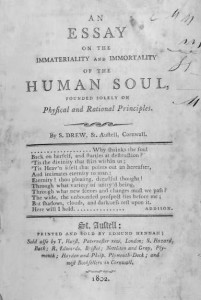 Drew’s sister told his biographer that her brother was at one point so anxious to read the Greek philosopher Plato’s dialogue On the Soul (also know as Plato’s Phaedo) that he hunted for it high and low across the county. When he found it among a stack of old books for sale in the market-place, he bought it and read it eagerly, but was ultimately disappointed by its contents.
Drew’s sister told his biographer that her brother was at one point so anxious to read the Greek philosopher Plato’s dialogue On the Soul (also know as Plato’s Phaedo) that he hunted for it high and low across the county. When he found it among a stack of old books for sale in the market-place, he bought it and read it eagerly, but was ultimately disappointed by its contents.
His search for the book brought him to a bookseller’s in Truro, where – scruffily dressed – he asked the manager if he had it in stock. His biography tells of how: ‘the singular incongruity between his unclassical appearance and the book for which he inquired, attracting the notice of some military officers who were lounging in the shop, one of them, who thought him a fair subject for a joke, said, “Mr. —– [the bookseller] has not got Plato, my man; but here (presenting him with a child’s Primer) is a book he thinks likely to be more serviceable to you; and, as you do not seem to be overstocked with cash, I’ll make you a present of it.”
In his inexpensive and ill-kept clothing, Samuel Drew clearly failed to meet the officers’ expectations of the class of person who might be sufficiently educated to have an interest in classical philosophy. Little did those scoffing snobs know that they were not only laughing at a man whose intelligence far outstripped their own, but at one who was destined to become one of the most highly regarded metaphysicians of his age, writing a book about the human soul that was long considered the definitive text on the subject. This self-taught Cornishman’s Essay on the Soul was reprinted many times on both sides of the Atlantic, reaching five English editions already at the time of his death in 1833.

